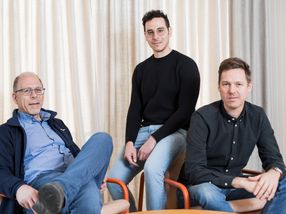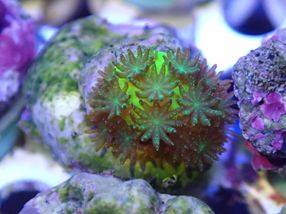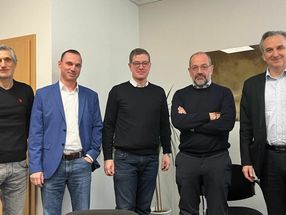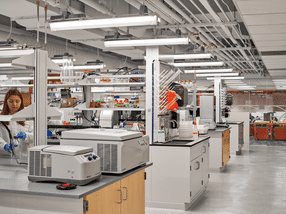BORN2GROW supports biotech start-up Venneos with its further growth
Venture capital fund BORN2GROW has invested in Stuttgart-based Venneos GmbH in the current round of Series A financing. The start-up is successfully developing and marketing the CAN-Q – a silicon chip-based imaging system for analysing biological cells.
“We are thrilled to have BORN2GROW on-board as a new investor, and that we will be able to benefit from its extensive expertise in the field of life sciences,” says David Wehner, one of the co-founders and co-directors of Venneos GmbH. The company is now aiming to consolidate its market entry. Also contributing to the current round of financing alongside venture capital fund BORN2GROW are the original seed investors – a consortium of business angels and family offices, the High-Tech Gründerfonds and the Max Planck Society.
“Germany’s bio-tech industry is growing, with a large number of research-driven innovations attracting global acclaim. Lots of start-ups in this sector are currently crossing the threshold into success,” explains Günter Steffen, Managing Partner of BORN2GROW. The privately financed venture capital fund from Heilbronn specialises in funding young technology companies in their early stages, and also supports their development by providing specialist expertise. “We are really pleased to have found in Venneos an exciting player for us to support in this field. The company is setting new standards in cell analysis and has outstanding growth prospects.”
Rainer Baule, of Venneos Beteiligungs GmbH, talking about this new round of funding: “The founding investors are happy that the investment from B2G will enable Venneos GmbH to pursue another successful stage in its development, and that funding is now secure for the future.”
Dr. Frank Hensel, Senior Investment Manager at the High-Tech Gründerfonds, is impressed: “The technology from Venneos has the potential to revolutionise the analysis of cell processes and thus set new quality standards and identify modes of action.”
“This new round of funding with an experienced investor consortium and a new investor confirms the great potential of this technology from the Max Planck Institute for Biochemistry, and will help expand the research and medical application base in a targeted way,” says Dr. Florian Kirschenhofer, Start-up & Portfolio Manager at Max Planck Innovation, the technology transfer organisation of the Max Planck Society.
The disruptive technology from Venneos is based on a silicon chip. Cells grow on this chip and it detects the electrical signals caused by cellular changes. The signals are then processed and can be represented in microscopy-like images. This makes it possible to identify changes, e.g. in cell adhesion, that other technologies cannot detect. The automated parallel analysis of up to several thousand cells at a single-cell level makes experiments more objective, more reproducible and more reliable. These systems are used in research, especially in tumour biology, immunology, pharmacology and drug development. Venneos was founded in 2014 as a spin-off of the Max Planck Society. With the additional funding, the company now plans to prepare new product generations and develop the technology further toward additional potential applications in the fields of pharmaceuticals, cosmetics and chemistry.
Other news from the department business & finance
Most read news
More news from our other portals
Something is happening in the life science industry ...
This is what true pioneering spirit looks like: Plenty of innovative start-ups are bringing fresh ideas, lifeblood and entrepreneurial spirit to change tomorrow's world for the better. Immerse yourself in the world of these young companies and take the opportunity to get in touch with the founders.
See the theme worlds for related content
Topic World Cell Analysis
Cell analyse advanced method allows us to explore and understand cells in their many facets. From single cell analysis to flow cytometry and imaging technology, cell analysis provides us with valuable insights into the structure, function and interaction of cells. Whether in medicine, biological research or pharmacology, cell analysis is revolutionizing our understanding of disease, development and treatment options.

Topic World Cell Analysis
Cell analyse advanced method allows us to explore and understand cells in their many facets. From single cell analysis to flow cytometry and imaging technology, cell analysis provides us with valuable insights into the structure, function and interaction of cells. Whether in medicine, biological research or pharmacology, cell analysis is revolutionizing our understanding of disease, development and treatment options.

























































